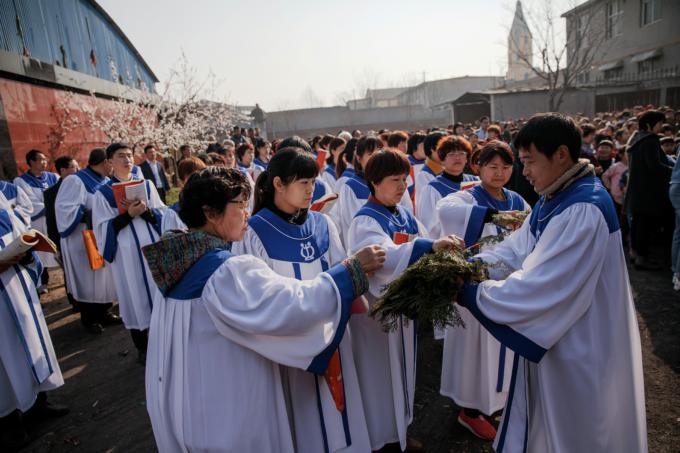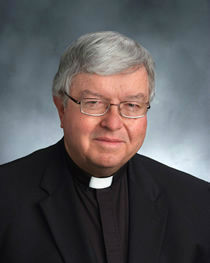
Faith
As a result of the new agreement, all of the Catholic bishops in the world's most populous country are now in communion with Rome, and Catholics will have more autonomy in the exercise of their beliefs.

Doyle
Q. I was surprised to read in the Catholic press an article criticizing Pope Francis' agreement to allow the Communist government to nominate candidates for bishops in China. So, my question is this: Are those under the pope's authority allowed to question publicly such an arrangement made by the Holy Father? (Newark, Ohio)
A. The answer to your question is "Yes," but first some important background.
The provisional agreement that you reference was made in September 2018 after years of careful negotiation. Previous to that, in a dispute going back for more than half a century, mainland China's some 12 million Catholics were more or less equally divided between an underground organization that recognized the pope's authority to name bishops and a state-supported Patriotic Association that named its own bishops.
Under the 2018 agreement, the excommunication of seven bishops who had been ordained with government approval was lifted, and new bishops are now proposed to the Vatican by the Chinese government after it receives input from the Chinese bishops' conference and Catholics from the areas involved. Then the pope makes the final decision as to whom to appoint, essentially giving the pontiff veto power.
As a result of the new agreement, all of the Catholic bishops in the world's most populous country are now in communion with Rome, and Catholics will have more autonomy in the exercise of their beliefs. The Vatican's secretary of state, Cardinal Pietro Parolin, said at the time that the agreement helps to give the Church "a greater freedom" so that it can dedicate itself to "the mission of announcing the Gospel."
The Church's decision to enter the agreement was a prudential and pastoral one with which anyone is free to disagree. In fact, one of the strongest critics when the agreement was being considered was Cardinal Joseph Zen, the retired archbishop of Hong Kong.
Q. I have a question that is personal. I haven't been to church in a while; and I don't usually pray, although recently I have begun to. Will God accept me still, if I start going to church at this point in my life? (I want to get close to him and I hope that it's not too late.) (Anaheim, California)
A. It is never too late. God's love for us is deep and everlasting. The Second Letter of Peter (3:9) tells us that the Lord "is patient with you, not wishing that any should perish but that all should come to repentance."
Think of the criminal on the cross who turned to Christ only hours before his death and was promised that, that very day, he would be with Jesus in paradise. And think, too, of St. Augustine, who lived a dissolute life as a young man, fathering a child out of wedlock and who, for years, followed various philosophers only to become disillusioned with their teachings.
When he was in his 30s, Augustine was inspired to pick up a Bible and "chanced" upon these words from Paul's Letter to the Romans (13:14): "Put on the Lord Jesus Christ, and make no provision for the desires of the flesh." Soon after, he was baptized by St. Ambrose and became one of our greatest saints.
Later, reflecting on his experience, Augustine made this keen observation: "You have made us for yourself, O Lord, and our hearts are restless until they rest in you." Thank you for your question, and I will pray for you on your journey back to prayer and Catholic practice.
- Father Kenneth Doyle is a columnist for Catholic News Service
Recent articles in the Faith & Family section
-
Did you know?Father Robert M. O'Grady
-
Sowing the Seeds of FaithMaureen Crowley Heil
-
Bread left overScott Hahn
-
Scripture Reflection for July 28, 2024, Seventeenth Sunday in Ordinary TimeJem Sullivan
-
What the universal call to holiness entailsDr. R. Jared Staudt





